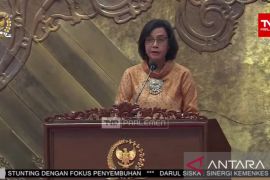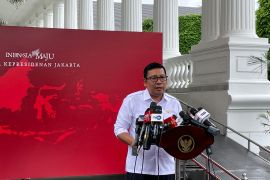A major contributor to the larger trade deficit in January 2020 was a narrower non-oil and gas trade surplus,Jakarta (ANTARA) - Indonesia's trade balance recorded a US$0.86 billion deficit in January 2020, up from $0.06 billion one month earlier. A major contributor to the larger trade deficit in January 2020 was a narrower non-oil and gas trade surplus, Executive Director of BI Communication Department Onny Widjanarko said in a statement in Jakarta, Tuesday.
The surplus was due to an import surge of consumer goods and capital goods for productive purposes amidst sluggish non-oil and gas exports in line with languishing global conditions.
Meanwhile, the oil and gas trade deficit also increased on declining oil and gas exports despite lower oil and gas imports compared with conditions in the previous period.
The non-oil and gas trade balance recorded a $0.32 billion surplus in January 2020, shrinking from $0.94 billion one month earlier.
On the one hand, the surplus was eroded by higher non-oil and gas imports in the form of consumer goods and capital goods, such as motor vehicles and parts while on the other, non-oil and gas exports remained sluggish, primarily held back by declining exports of animal/vegetable fats and oils as well as metal ore, crust and dust, contrasting increasing exports of precious metals, jewellery/gems and iron and steel in line with solid global demand.
Related news: Trade balance may potentially swing to surplus in 2020: BI
Related news: IHSG plunges following balance of trade deficit
Meanwhile, the oil and gas trade deficit increased to $1.18 billion in January 2020 from $1 billion the month earlier, induced predominantly by declining oil and gas exports in the form of crude oil and gas despite oil and gas imports also decreasing in the form of refined products and gas.
Bank Indonesia is confident that the trade balance recorded in January 2020 is indicative of solid domestic demand.
The import surge of consumer goods suggests public purchasing power has been maintained, while higher imports of capital goods reflect confidence in the promising national economic outlook.
Moving forward, Bank Indonesia will continue to strengthen policy synergy with the government and other relevant authorities to bolster external resilience, including the trade balance outlook.
Related news: Steel import cause of trade balance deficit: Jokowi
Related news: Indonesia records US$0.03 billion trade deficit in December
Translator: Azis Kurmala
Editor: Mulyo Sunyoto
Copyright © ANTARA 2020












